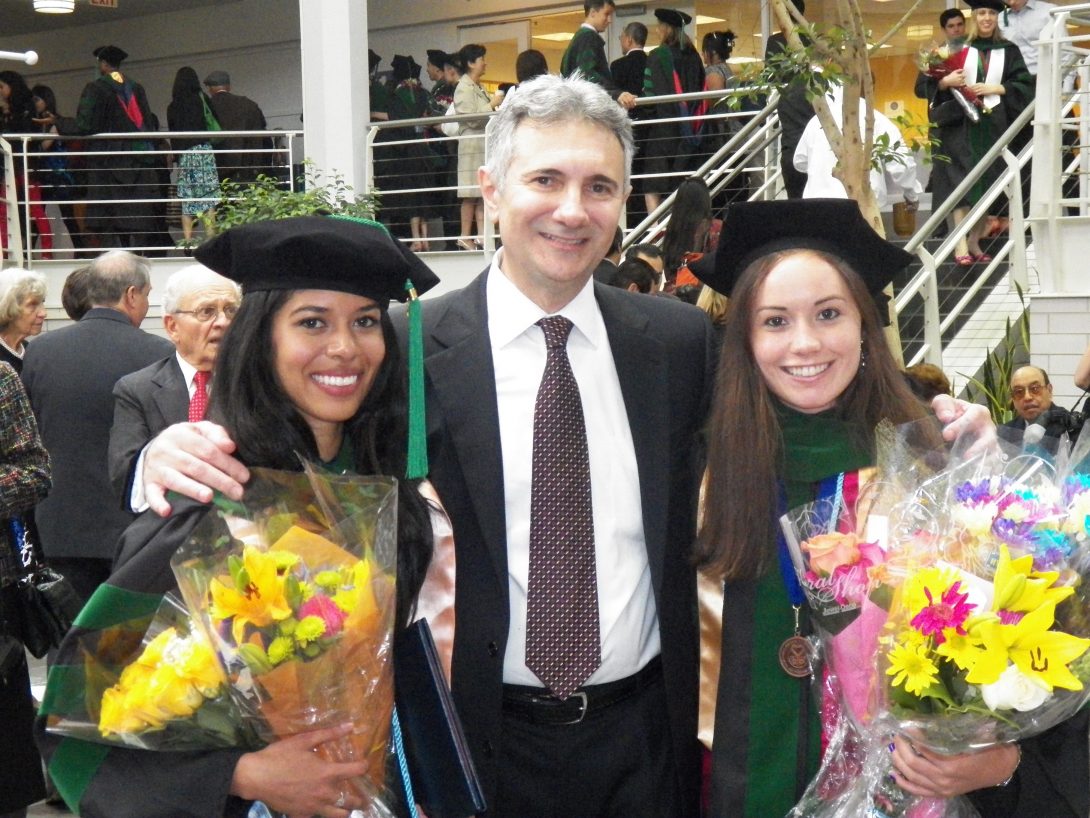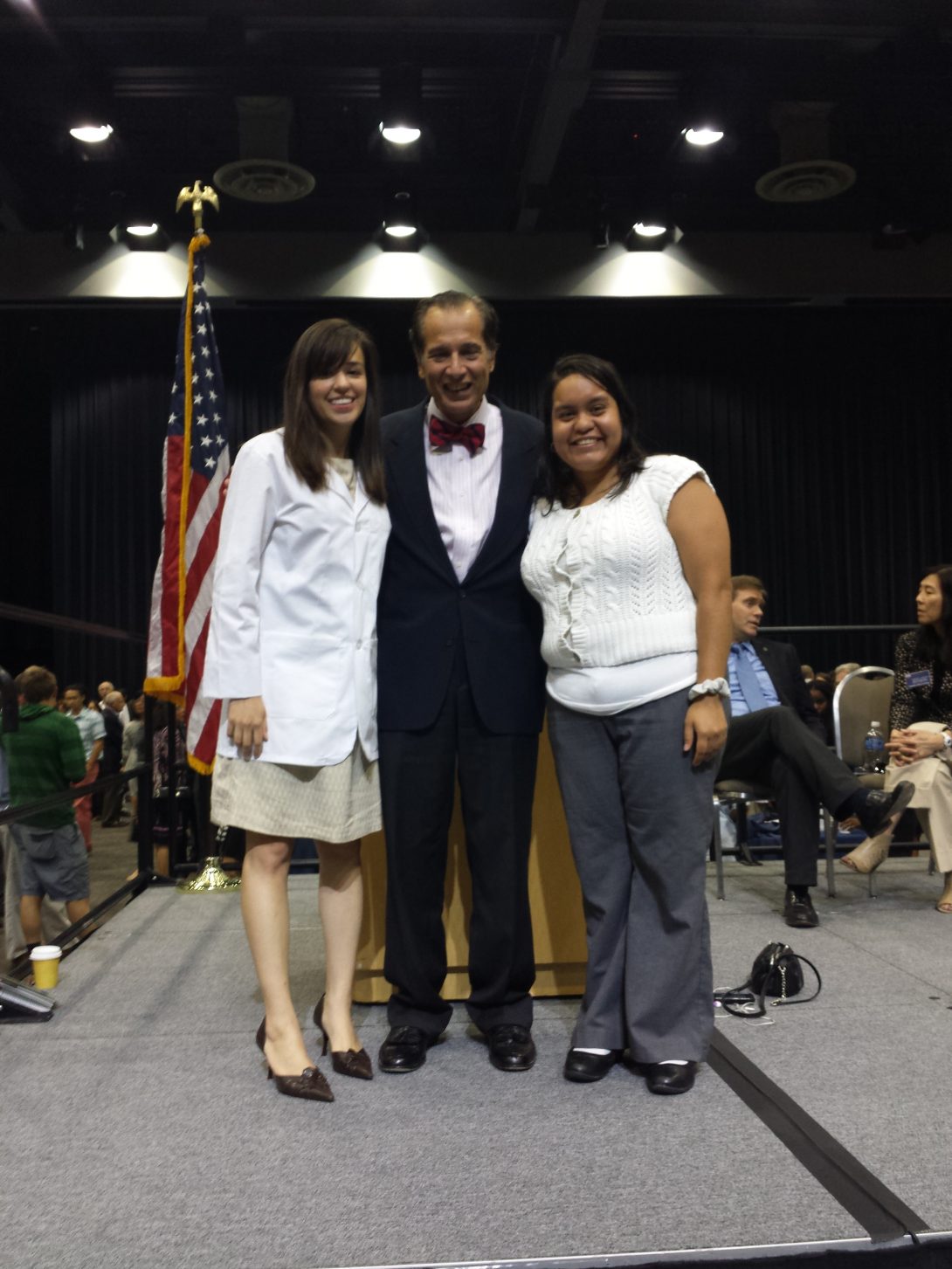Promoting Medical Careers for Hispanic Youth
Part 1

Dr. Jasmine Partida’s high school counselor was one of the few adults who asked if she was planning to go to college. Growing up in an under-resourced, Hispanic community in Aurora, she found herself wishing the expectations of her and her classmates were higher.
“Teachers had low expectations of students’ potential due to the repeated stereotypes attributed to low income Hispanic students,” said Dr. Partida. “I wanted to disprove what my own teachers thought about minority students in my community.”
A high school counselor, upon learning she was interested in becoming a doctor, told Dr. Partida about UIC’s Hispanic Center of Excellence (HCOE). The program, in UIC’s College of Medicine, promotes science and medical careers for Hispanic youth who are interested in pursing careers in healthcare.
HCOE began with federal funding in 1991 when Latinos made up ten percent of the Illinois population but only five percent of physicians. Thirty years later, and now supported with state funding rather than federal, the Latino population has grown to 17 percent but the number of practicing physicians has not followed suit.
Dr. Partida Quote
“I chose UIC for medical school so I could receive a quality education while serving a diverse patient population. My training also included a focus on becoming a culturally competent physician.”
Part 2

“Minority students have a strong interest in healthcare and serving their communities, but the math and science education they receive often lags, which affects a student’s ability to pursue a medical career,” said Jorge A. Girotti MHA ’17, PhD ’90, former Director of the HCOE. “Eighty percent of the College of Medicine’s medical students come from the top two quintiles of socioeconomic status. Their families are college educated and expect their children to be as well. Conversely, 80 percent of Hispanic students would be the first in their families to attend college.”
HCOE’s Medicina Academy reaches into high schools to try and help Hispanic students overcome these barriers to a STEM education. They offer college readiness programming and exposure to health careers. The program has served 11 high schools since 2015. These are the type of programs that would have been of great benefit to Dr. Partida during high school if they had been available.
Throughout her life, Dr. Partida had always wanted a meaningful career that would allow her to be of service to others. In her community, Dr. Partida witnessed distrust for medical professionals that often led to life-threatening illnesses that could have been prevented with proper treatment. She took this interest in medicine to the University of Chicago for her undergraduate education. While at the university, Dr. Partida found herself immersed in a culturally diverse and intellectually challenging educational environment. It was here that she became part of the HCOE’s Medicina Scholars program and attended workshops on medical school preparation and obtained tools to study for the MCAT.
“I would meet regularly with a group of students at UIC’s College of Medicine and hear from Hispanic doctors about their journeys,” said Dr. Partida. “They shared how they overcame the same barriers I was encountering on my path to medical school. Listening to these doctors made my goal seem possible.”
Dr. Girotti Quote
“Our mission is to improve the medical care of Latinos in Illinois. Guiding Latino students from high school through four-year universities and on to a science career is a link to improving care in those communities.”
Part 3
Her experience and that of many other students reflects HCOE’s continued goals to enrich students’ experiences and create a supportive community with one-on-one counseling and connections to resources and academic support as needed.
“I chose UIC for medical school so I could receive a quality education while serving a diverse patient population. My training also included a focus on becoming a culturally competent physician,” said Dr. Partida. “HCOE was a supportive hub for medical students that provided textbooks, promoted learning with study groups and provided encouragement during difficult times. “
“The program has made an impact for students who might not have role models and for whom support and encouragement may be absent,” said Dr. Girotti. “Our mission is to improve the medical care of Latinos in Illinois. Guiding Latino students from high school through four-year universities and on to a science career is a link to improving care in those communities.”
Private giving has made an enormous impact on HCOE’s ability to operate. The Hispanic Center of Excellence Fund allows for programs and activities that enhance cultural competence training and opportunities for students and faculty, while the Jorge A. Girotti Scholarship and Hispanic Center of Excellence Scholarship aid HCOE students who are in good standing and may have unmet financial need. Dr. Partida benefitted from the UIC Jorge A. Cavero, MD and Kristine L. Cieslak, MD Scholarship for HCOE students. “The support is a real blessing,” said Dr. Partida. “This gift helped pay my daily expenses as well as the high cost of licensing exams. I see this gift as a compassionate act that provides relief during unpredictable moments in the lives of students who are longing to transform lives themselves.”
There have been 370 Medicina Scholar participants since 2010. On average, 82 percent of participants’ parents did not attend college. Yet, nearly 60 percent of participants completed the program. Through 2016, 34 students have been admitted to a higher education health program and 40 have been admitted to medical school. In spring of 2020, 11 participants graduated from UIC’s College of Medicine.
Dr. Partida is one of the 11, but she isn’t sure she’d have made it this far without HCOE or her scholarships. “Their interest in me becoming a physician helped me triumph even through the most trying times,” said Dr. Partida. “I learned I wasn’t alone and there were others who understood my background and wanted to help me succeed.”
Today, Dr. Partida is applying for psychiatry residencies while volunteering and working. Her professional goal is to provide high quality mental health services to patients in under-resourced communities. Her commitment to serving a Hispanic community is the fulfillment of HCOE’s goal.
“Healthcare is an important right and medicine is for everyone,” said Dr. Girotti. “This drives our work. We’re not increasing the number of Hispanic caregivers just for statistics. Access to healthcare is a means to even the playing field. Let’s help increase that access.”